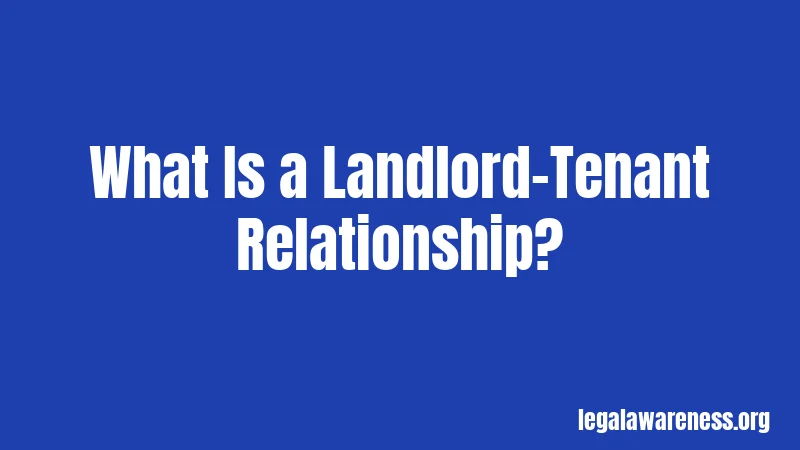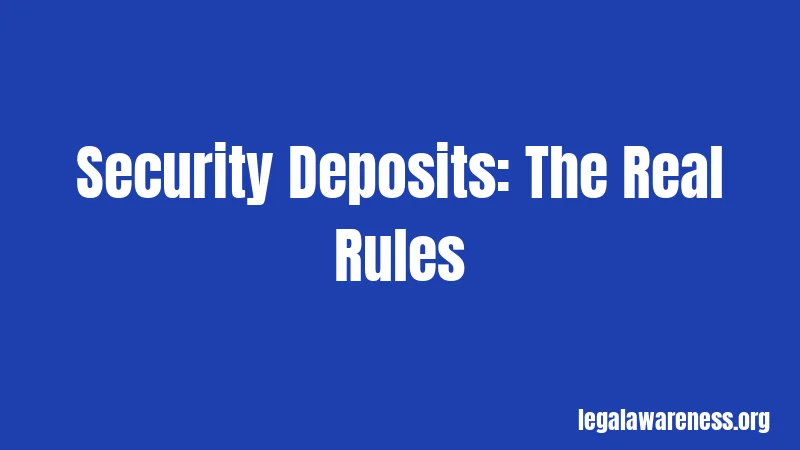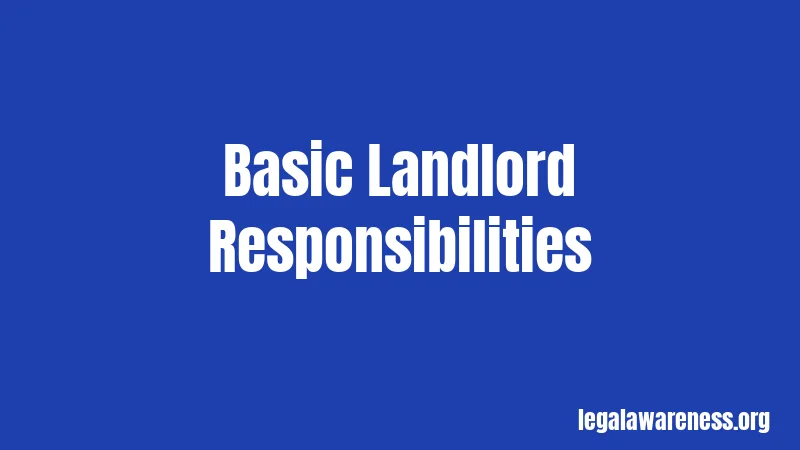Pennsylvania Landlord Laws in 2026: Your Complete Renter’s Guide
Most people don’t realize how much the law protects them when renting. Seriously. But in Pennsylvania, landlord-tenant laws are pretty detailed. Both sides have real rights and real responsibilities. Let’s break down what you actually need to know.
Whether you’re renting for the first time or you’ve been through this before, understanding these rules matters. They protect your money, your safety, and your home. Let’s go.
What Is a Landlord-Tenant Relationship?

Here’s the simple version: a landlord-tenant relationship is a legal agreement. One person owns the property. Another person pays to live in it. Pennsylvania law says both sides get certain protections. The landlord can’t just do whatever they want. You can’t either. It’s balanced (mostly). Trust me, understanding this makes everything clearer.
Think of it like a contract with built-in safety rules. Even if you and your landlord never write anything down, Pennsylvania law automatically applies. You get rights. Your landlord gets rights. That’s actually really helpful.
Leases: What You Need to Know
A lease is basically a promise. Your landlord promises to let you live there. You promise to pay rent and follow the rules. Pretty straightforward, right?
Here’s what’s important: a lease can be written or verbal. But written is always better. If a lease is longer than three years, it has to be in writing. No exceptions. For anything three years or less, you could do a handshake deal, but honestly, don’t. Get it in writing.
Your lease should spell out the rent amount, when it’s due, the lease duration, and house rules. If it doesn’t mention something, Pennsylvania law fills in the blanks automatically. Your landlord can’t use a lease to cancel your legal rights either. Certain things just can’t be waived, no matter what your lease says.
Not sure what counts as an unfair lease term? Basically, if it removes your right to a safe home, it won’t hold up in court. Courts in Pennsylvania protect renters from really bad deal clauses.
Security Deposits: The Real Rules

Okay, this one matters a lot. Security deposits are money you give your landlord before you move in. They’re yours. The landlord just holds them. Here’s how it actually works in Pennsylvania.
First year: Your landlord can ask for a security deposit of up to two months’ rent. That’s the maximum. They can’t ask for more.
Second year and beyond: Your landlord can only hold one month’s rent as a deposit. If they collected more during year one, they have to give you back the extra amount.
After two years: Here’s where it gets interesting. If your deposit is over $100, your landlord must put it in an interest-bearing account. You earn interest on that money. Your landlord has to pay that interest to you once a year on your lease anniversary. They can keep 1% as an administrative fee, but that’s it.
When you move out, your landlord has 30 days to return your full deposit or give you a written list of deductions. If they owe you money and don’t pay, you can sue them for double the amount they wrongfully kept. That’s real.
What can your landlord actually deduct from your deposit? Unpaid rent and damage that goes beyond normal wear and tear. Scuffs from normal living? Not deductible. A huge hole in the wall? Yep, they can deduct that.
How Rent Works in Pennsylvania
Here’s what you need to know: rent is due on whatever day you and your landlord agree to. Pennsylvania doesn’t require grace periods. That means there’s no built-in buffer time. If your lease says rent is due on the 1st, it’s due on the 1st.
Your landlord can charge late fees, and there’s no state limit on how much. But here’s the thing—judges won’t enforce unreasonable late fees. Most judges think 4% to 5% of the rent is fair, as long as there’s an upper limit. So if your late fee is reasonable, it’ll probably stick. If it’s crazy high, a court might throw it out.
Wondering if your landlord can raise your rent whenever they want? In Pennsylvania, yes—but only when your lease ends. They can’t raise rent during your lease term unless your lease specifically says they can. When the lease is up, they can raise it as much as they want (unless you live in a city like Philadelphia, which has some extra rules). No statewide rent control exists in Pennsylvania, but that can change.
Basic Landlord Responsibilities

Your landlord has to follow the law. Here’s what that means.
Safe and habitable housing: Your landlord must provide a livable home. This means heat, water, electricity, working plumbing, weatherproofing, locks that work, and a structurally safe space. No exceptions. This is called the “warranty of habitability.” It’s automatic—you don’t have to ask for it.
Repairs: When something breaks, your landlord has to fix it within a “reasonable” time. Pennsylvania doesn’t define exactly what “reasonable” is—it depends on the situation. A broken heat system in winter? That’s urgent. A cracked tile in summer? Less urgent. But your landlord can’t just ignore it forever.
Here’s what’s cool: you can report repair requests verbally or in writing. Most states require written notice. Pennsylvania doesn’t. Say it out loud, and it counts. (Though writing it down is still smarter—you have proof).
If your landlord doesn’t make repairs in a reasonable time, you have options. You can sue them. You can ask a court to force them to make repairs. You can also withhold rent (by paying it into a court-approved account) or make repairs yourself and deduct the cost from rent. But do this carefully—follow the rules, or it could backfire.
Security deposit disclosure: If your deposit is over $100, your landlord must tell you in writing where they’re keeping it. They have to give you the bank’s name and address. Easy requirement, but many landlords forget. If they don’t tell you, you have legal grounds to complain.
Tenant Responsibilities
It’s not all on the landlord. You have responsibilities too.
Pay rent on time: This is the big one. Late rent gives your landlord grounds to evict you. Pay when it’s due.
Keep the unit clean and safe: Remove trash, avoid pests, don’t create hazards. Keep the place in decent condition. Not pristine—just livable. Fix things your guests or family break that aren’t normal wear and tear.
Don’t damage the property: Normal wear and tear is fine. Holes in walls, broken fixtures, damaged floors—that’s on you.
Follow lease terms: Don’t sublet without permission. Don’t run a business from the unit if the lease says not to. Don’t cause disturbances to neighbors. Pretty basic stuff.
Evictions: How It Actually Works
Okay, this is where it gets serious. Landlords can’t just kick you out. They need a legal reason and have to follow a specific process.
Reasons a landlord can evict you:
Nonpayment of rent is the big one. You don’t pay, they can start eviction.
Violating your lease—like having unauthorized occupants or keeping a pet when it’s not allowed.
Illegal activity on the property. Drug use, for example.
End of lease—if your lease expires and you don’t leave.
The notice process (this is important):
For nonpayment, your landlord gives you a 10-day notice to quit. You have 10 days to pay the full amount owed plus court costs. If you pay up, the eviction stops. If you don’t, they can go to court.
For lease violations on a tenancy of one year or less, your landlord gives you a 15-day notice to cure or quit. That means fix it in 15 days or leave. For tenancies longer than one year, it’s a 30-day notice.
For illegal drug activity, the notice is unconditional. You get 10 days to quit. Period.
Then comes court: If you don’t comply with the notice, your landlord files a case in court. You get served with papers. You have the right to show up and defend yourself. You can bring evidence, documents, photos, emails—anything that supports your case. Judges take this seriously. Show up. Don’t miss your hearing.
Self-help evictions are illegal: Your landlord can’t lock you out, shut off utilities, remove your stuff, or throw you out without going through the court system. If they do, that’s illegal. Call police if this happens.
Hold on, this part is important. In Philadelphia, there’s an eviction diversion program. Landlords must try mediation with you before filing for eviction. This is a huge deal because it gives you a chance to work things out outside of court. If you’re in Philly, know about this option.
Discrimination and Fair Housing
Pennsylvania law protects you from housing discrimination. Here’s what counts as illegal:
Refusing to rent based on race, color, national origin, religion, sex, family status (including pregnancy), disability, age, ancestry, or because you use a guide or support animal.
Treating you differently because of these things. Higher rent, different lease terms, fewer amenities—all illegal.
Your landlord has to use fair, consistent screening for all applicants. They can’t have different rules for different people.
Discrimination lawsuits go to the Pennsylvania Human Relations Commission or to federal housing authorities. You can seek compensation and corrective action.
If you think you’ve been discriminated against, document everything. Keep records of conversations, emails, and notes about what happened. Then report it.
Landlord Entry and Privacy
Here’s something surprising: Pennsylvania doesn’t have specific laws about when landlords can enter your unit. That means you and your landlord can set your own rules in the lease.
If your lease doesn’t say anything about it, your landlord can enter for purposes “reasonably related to the tenancy.” That means repairs, inspections, showing the place to new tenants, or emergencies. They should probably give you notice, but the state doesn’t require it.
This is one area where getting details in your lease matters. Specify when and how your landlord can enter. Can they just show up? Do they need 24 hours notice? Write it down.
Philadelphia-Specific Rules
If you rent in Philadelphia, there are extra rules on top of state law. Philadelphia takes tenant protection seriously.
Certificate of Rental Suitability: Before you move in, your landlord must get this certificate from the city. It confirms the property is safe, has working fire protection and smoke detectors, and meets all building codes. It costs nothing. But landlords need it within 60 days before your tenancy starts. Your landlord must give you a copy before you move in. If they don’t, that’s a big problem for them legally.
Eviction diversion: Before filing for eviction, your landlord must try to work things out with you. This could mean repayment plans, mediation, or negotiation. It’s designed to keep people housed. It actually works.
Application fees: Philadelphia caps application fees at $20 (some reports say up to $50 depending on final legislation). This is way lower than many places.
Multiple deposits: If you’re renting from a larger landlord (three or more units) and they want more than one month’s deposit, they must let you pay the excess in three equal monthly installments after you move in. This makes moving more affordable.
Rental license requirements: Landlords must have a valid rental license. Without it, they can’t legally collect rent or evict. This is serious. Philadelphia courts will side with tenants if the landlord doesn’t have proper documentation.
Basically, Philadelphia has stricter rules. Your landlord has to be more careful and more professional. That’s actually good for renters.
Retaliation: What Your Landlord Cannot Do
Here’s an important protection: your landlord cannot retaliate against you. What does that mean?
If you report unsafe living conditions to authorities, your landlord can’t raise your rent, decrease services, or threaten eviction.
If you request repairs, same thing—no retaliation.
If you organize with other tenants or join a tenant association, your landlord can’t punish you.
If you exercise any legal right, retaliation is forbidden.
What counts as retaliation? Raising rent, reducing services, threatening eviction, decreasing maintenance, or harassing you. If it happens within a reasonable time after you exercise a legal right, courts assume it’s retaliation unless the landlord proves otherwise.
If you think you’re being retaliated against, document it. Write down dates, what happened, what you reported. Talk to a lawyer if needed.
Breaking Your Lease Early
So you need to break your lease. Pennsylvania allows this in certain situations.
Valid reasons to break your lease early:
Active military duty—federal law protects you.
Uninhabitable unit—if the place becomes unlivable and your landlord won’t fix it.
Landlord harassment or illegal retaliation.
Early termination clause in your lease.
Here’s the catch: if you break your lease for other reasons, you’re still liable for rent through the end of the lease term. Your landlord has to try to find a new tenant though. If they do, you stop owing. If they don’t, you owe the full remaining rent. This is called “mitigation of damages”—your landlord can’t just leave the place empty and sue you for everything.
The deposit issue? If you break your lease, your landlord can deduct for unpaid rent and damage. But they can’t keep the whole deposit just because you left early. They return what’s left over.
Late Rent and Eviction Process Details
Okay, let’s talk about what actually happens when rent is late.
Your landlord gives you a 10-day notice to quit for nonpayment. You have exactly 10 days to pay the full amount owed plus court costs. If you pay, the eviction stops and you stay.
If you don’t pay, your landlord files a Summons and Complaint in court. You’ll get served with court papers. The court will schedule a hearing.
At the hearing, you and your landlord each present your case. You can bring a lawyer. You can bring documents, photos, emails, anything supporting your position. Judges actually care about evidence.
If the judge rules against you, you get a judgment for eviction. You have a final chance to pay what’s owed and avoid removal. If you still don’t pay, the sheriff comes and removes you.
This whole process takes time. You can’t get evicted overnight. But it moves faster than other lawsuits. If you get that first notice, act immediately.
Lead-Based Paint Disclosures
Pennsylvania requires landlords to disclose lead-based paint hazards. This applies to properties built before 1978.
Your landlord must tell you what they know about lead paint and hazards. They must give you a pamphlet with federal information about lead. If the property has been tested for lead, they must provide results.
This matters especially if children will live in the unit. Lead is dangerous for kids’ developing brains. It’s serious.
If you think your unit has lead hazards and your landlord isn’t addressing it, you can report it to the Pennsylvania Department of Health or to local authorities.
Frequently Asked Questions
Can my landlord charge an application fee?
Yes, and it can be non-refundable. But Pennsylvania has no state limit on how much. However, Philadelphia caps it at $20. Check your local rules.
What if my landlord keeps part of my security deposit unfairly?
You can sue for double the amount wrongfully withheld. That’s the penalty for illegal deductions. Make sure your landlord provides an itemized list of deductions within 30 days of move-out.
Can my landlord enter my apartment whenever they want?
Pennsylvania doesn’t require notice, but your lease can set rules. If your lease doesn’t mention entry, your landlord can enter for reasonable purposes. Get entry terms in your lease in writing.
Can I withhold rent if repairs aren’t made?
Yes, but carefully. You typically pay into a court-approved escrow account. Don’t just stop paying—follow proper procedures. Consult a lawyer on this one.
How long do I have to move out after an eviction judgment?
It depends on your lease type and the reason for eviction. Usually, you get some time after judgment, but move quickly. Police can enforce removal.
Is there rent control in Pennsylvania?
No statewide rent control. Landlords can raise rent any amount when the lease ends. Some cities may have local controls—check with your city.
What if my landlord won’t return my security deposit?
Send a written demand. Give them 30 days. If they don’t respond with the deposit or an itemized deduction list, you have legal grounds to sue. Small claims court might be your option.
Final Thoughts
Pennsylvania landlord-tenant law is detailed but fair. Landlords have rights, but tenants have serious protections too. The law assumes both sides should behave reasonably.
Your best defense is knowledge. Understand your lease before signing. Keep records of everything—rent payments, repair requests, conversations. Document problems with photos and written notes. If something feels wrong, it probably is.
If you live in Philadelphia, know the extra rules. They’re there to protect you. If disputes come up outside Philly, understand the basics of eviction notice timing and procedures. You have time to act if you know what’s coming.
Don’t hesitate to get legal help if needed. Many areas have legal aid organizations for low-income renters. The Pennsylvania Attorney General’s Office offers a consumer guide. Use these resources.
Now you know the basics. Stay informed, keep records, follow your lease terms, and don’t be afraid to stand up for your rights. You’ve got this.
References
Pennsylvania Attorney General Consumer Guide to Tenant and Landlord Rights – Official state guide to landlord-tenant law and rights
Pennsylvania Landlord and Tenant Act of 1951 – State statute governing all rental relationships
Pennsylvania Human Relations Commission – Handles discrimination complaints in housing
Philadelphia Fair Housing Commission – Rental Suitability – Philadelphia’s Certificate of Rental Suitability requirements
Philadelphia Licenses and Inspections – Tenant Landlord Information – Philadelphia-specific rental requirements and protections
HUD Fair Housing – Federal fair housing laws and protections
Pennsylvania Legal Aid Network – Free legal help for low-income Pennsylvanians with housing issues
